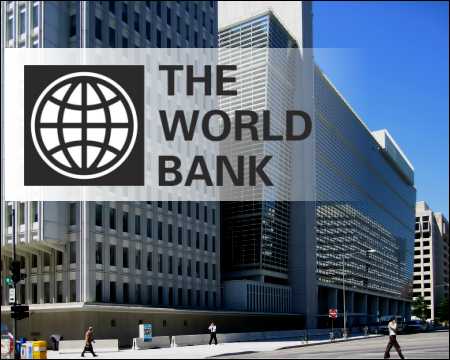The World Bank has revised Nigeria’s economic growth forecast for 2019 to 2.1 percent, down from the earlier 2.2 per cent growth projection for the country, representing 0.1 percent point reduction.
The Breton Woods institution’s latest forecast on Nigeria was contained in the April edition of Africa’s Pulse, the bank’s periodical analysis of the state of African economies.
Specifically, the bank cited stagnant oil production, high inflation and policy distortions as reasons for the cut in the nation’s estimated growth projection for the current fiscal year.
On the projected growth rate, the bank stated: “This modest expansion reflects stagnant oil production, as regulatory uncertainty limits investment in the oil sector, while non-oil economic activity is held back by high inflation, policy distortions, and infrastructure constraints.”
While noting that improving financing conditions will help boost investment, the bank projected that the nation’s economic growth would rise slightly to 2.2 percent in 2020 and reach 2.4 percent in 2021.
Generally, the World Bank predicted that due to slower growth in three of the region’s biggest economies, growth estimates for sub-Saharan Africa would recover to 2.8 percent in 2019 and 3.3 percent in 2020.
It stated that the growth “upturn is supported, on the demand side, by exports and private consumption and, on the supply side, by a rebound in agriculture, an increase in mining production, and steady growth in the services sector in some countries.”
According to the bank, the sub-Sahara growth projections represent 0.5 and 0.3 percentage points lower than its last October’s forecasts and reflect slower growth in Nigeria and Angola, due to challenges in the oil sector, and subdued investment growth in South Africa, due to low business confidence.
In addition, while noting that commodity prices improved in the first quarter of 2019, the bank noted that they were below their peak in 2018 and the oil market outlook remained highly uncertain. Despite this, the bank forecasts that as activity strengthens in the region’s three largest economies, regional growth is expected to improve slightly to 2.4 percent in 2021.
This is even as it stated that the external environment for the sub-Saharan region remained challenging, as global growth continues to decelerate, and global uncertainty related to trade disputes between the United States and China remains high.



